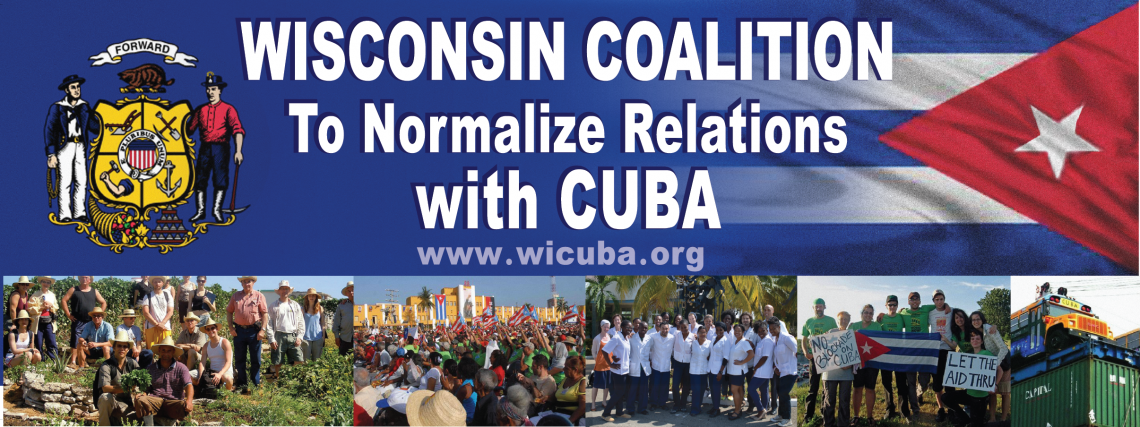Cuba is a sovereign nation. It thus has “the right to choose, without external interference, its political, economic, and social system and to organize itself in the way best suited to it,” as recognized by both international law and incorporated into U.S. law as “the supreme law of the land” based on Article VI of the U.S. Constitution.1 Despite the accompanying “duty to abstain from intervening in the affairs of another State,” 2 the U.S. from 1898 to 1959 dominated Cuban affairs until a popular revolution overthrew the brutal Batista dictatorship and set its own priorities such as universal & free healthcare and free education to the highest levels, in a non-capitalist economy.3 Since 1960, the official U.S. assessment was that since “[t]he majority of Cubans support Castro … [t]he only foreseeable means of alienating internal support is through disaffection based on economic dissatisfaction and hardship,” thus justifying a U.S. policy seeking to “bring about hunger, desperation and overthrow of government.”4
According to the U.S. government (Nov. 2007): “The embargo on Cuba is the most comprehensive set of American sanctions ever imposed upon a country.”5 It is also the longest lasting, over 54 years so far. For 23 consecutive years a worldwide consensus in the UN General Assembly has declared the “Necessity of Ending the Economic, Commercial and Financial Embargo imposed by the U.S.A. against Cuba”; the vote was 188 to 2 in Oct. 2014.6 These sanctions are more than a simple embargo, as they prevents third countries from trading with Cuba, if their corporations have significant U.S. ownership or their products have U.S. components. E.g., medical textbooks from Spain and pacemakers from Sweden could no longer be sold to Cuba after the scope of these sanctions was expanded in the 1990s.7
Even under President Obama, the extraterritorial effects of this U.S. policy have expanded, with banks in France, Switzerland and Ireland being fined billions of dollars and/or intimidated so that they will no longer handle legal transactions by their customers with Cuba.8
According to court-released U.S. documents in 2013, our government “has between five to seven different transition plans” to overturn the Cuban Revolution.9
The Associated Press has revealed a series of US AID programs designed to recruit Cubans and build opposition in Cuba, relying increasingly on social media & deception. One of them sent young Latin Americans to Cuba, falsely pretending to be health workers sponsoring HIV workshops.10 Another program set up a fake twitter program, hiding U.S. government sponsorship, & seeking to determine the political leanings of some 700,000 unsuspecting Cuban cellphone users, based on their responses to psychologically developed messages 11 The U.S. has spent millions on such programs; this does not count unreported efforts by the CIA or the NSA.12 Nor does it count some 3,500 Cubans killed by decades of terrorism based in the U.S., according to Cuba’s count, with the perpetrators still being harbored in the U.S.13
INTERNET ACCESS: AN EVOLVING SITUATION
This is indeed an issue in Cuba, and must be seen in the context of the U.S. attempts to deny Cuba modern technology, while now attempting to use social media to encourage unrest (see above). E.g., in 1996 under Pres. Clinton, the U.S. seized used laptops donated for Cuba’s medical system, & these were only released after Rev. Lucius Walker & others from Pastors for Peace went a hunger strike/”fast for life” for 94 days.14
According to the London Economist & other sources, the US has long prevented Cuba from internet access via underwater cables that serve the rest of the Caribbean. As a result, Cuba had to access the internet by satellite, which is very expensive and resulted in very limited bandwidth to the island. Cuba attempted to prioritize public access through schools and community centers. Email access was often unreliable, and even professional had to share accounts. Venezuela has worked with Cuba to address this, first establishing cable connections last year.15 Since then 100’s of internet linked centers have been opened, but they remain expensive and have long lines.
According to major European media, “Once on line, censorship is almost non-existent with only pornography and a handful of political websites are out of bounds.”16 The BBC reported in August 2014 that 300 public centers recently opened; that mobile phones could access email but not the internet; “Cubans are quite ingenious … Growing number have smart phones, … packed full of offline applications”: Wikipedia, games, and “for a small fee” can get flash drives loaded full of films, TV shows, books & including current magazines from abroad.17
THE RIGHT TO TRAVEL: CUBANS ARE NOW FREER TO TRAVEL ABROAD THAN WE ARE TO TRAVEL TO CUBA.
U.S. law still asserts that all U.S. residents and citizens must be “licensed” to engage in any transactions for travel to Cuba – at the risk of ten years in prison and large fines.18 Today most Cubans have no restrictions from their government to travel abroad, including to the U.S. But the U.S. denies the majority of visa applications from Cubans to visit here, after charging them $160 in U.S. hard currency (arguably equal to a half year’s wages for many Cubans). 19 In contrast, Cuba routinely issues tourist visas to U.S. people at the airport with no questions asked, and for c.$25.
Sources
- This principle of international law is quoted here from the Charter of the Organization of American States, a treaty ratified by the U.S., making it “the supreme law of the land”, Art. 6, clause 2. The same principle is essentially stated in UN resolutions and covenants, which have been recognized as Customary Int’l law, including General Assembly Resolution 2526 of 1974 on Friendly Relations between states.
- Id (Quoting the OAS Charter).
- Lars Schoultz, That Infernal Little Cuban Republic: The U.S and the Cuban Revolution (Univ. of N. Car. Press, Chapel Hill, 2009)
- April 6, 1960 internal memorandum of Lester B. Mallory, Deputy Asst. Secretary of State for Inter-American Affairs, as quoted in Salim Lamrani, The Economic War Against Cuba, at 72-73 (Monthly Review Press, NY, 2013).
- U.S. Government Accountability Office, Economic Sanctions: Agencies Face Competing Priorities in Enforcing the U.S. Embargo on Cuba, November 2007, http://www.gao.gov/new.items/d0880.pdf.
- The quote is taken from the resolution’s title as passed in Oct. 2014. Mirjam Donath & Louis Charbonneau; “For 23rd time, U.N. nations urge end to U.S. embargo on Cuba,” http://www.reuters.com/article/2014/10/28/us-cuba-un-idUSKBN0IH1RN20141028.
- The U.S. embargo or economic blockade was tightened after fall of the USSR, by the Toricelli bill in 1992 and Helms Burton Act in 1996. See Lamrani, above; R Garfield and S Santana. “The impact of the economic crisis and the US embargo on health in Cuba.” American Journal of Public Health January 1997: Vol. 87, No. 1, pp. 15-20, & their separate publication on this (no longer in print); “The Politics of Suffering: The Impact of the US Embargo on the Health of the Cuban People,” http://www.jstor.org/discover/10.2307/3342609?uid=3739256&uid=2&uid=4&sid=21104725641901.
- The French bank BNP Paribas was fined over $9 billion, along with other sanctions, Huffington Post Politics Online, written by Larry R. Oberd, July 7, 2014. http://www.huffingtonpost.com/salim-lamrani/the-united-states-bnp-par_b_5557288.html page_version=legacy& view=print&comm_ref=false; “Bank of Ireland Bans Trade with Cuba after U.S. Ruling,” Colm Kelpie, The Independent, March 7, 2014 http://www.independent.ie/business/irish/boi-bans-trade-with-cuba-after-us-ruling-30402541.html
- As posted Jan. 18, 2013 by the National Securities Archive at George Washington Univ., “Alan Gross Case Lifts Veil of Secrecy U.S. Democracy Programs in Cuba” http://www2.gwu.edu/~nsarchiv/NSAEBB/NSAEBB411/, which summarizes the primary document http://www2.gwu.edu/~nsarchiv/NSAEBB/NSAEBB411/docs/grossdaiaidmeeting2008.pdf. Also posted at http://nlginternational.org/news/article.php?nid=510.
- In August, 2014, the AP revealed “USAID Program Used Young Latin Americans to Incite Cuba Rebellion,” Guardian, http://www.theguardian.com/world/2014/aug/04/usaid-latin-americans-cubarebellion-hiv-workshops.
- The goal was to then use this information to promote dissension in Cuba. See Desmond Butler, Jack Gillum & Alberto Arce, “US secretly created ‘Cuban Twitter’ to stir unrest,” The Big Story, http://bigstory.ap.org/article/us-secretly-created-cuban-twitter-stir-unrest.
- In addition to the US AID, the National Endowment for Democracy issues annual reports on its “democracy” building programs in Cuba and elsewhere, see http://www.ned.org. CIA expenditures are secret and off budget.
- The U.S. Court of Appeals in UNITED STATES v. Ruben CAMPA, 419 F.3d 1219 (11 Cir., 2005) recites evidence of substantial terrorist attacks against Cuba from the U.S., see esply. notes 168-170 & 191 and the accompanying text. Cuba’s official count of the victims (3,478 Cubans killed and 2,099 permanently disabled) is included in the October 6, 2010 Speech by Raul Castro Ruz, commemorating the victims of State Terrorism Day, http://www.cuba.cu/gobierno/rauldiscursos/2010/ing/r061010i.html (visited 12/2/2014). The most notorious terrorist still living freely in Miami is Luis Posada Carriles. See the NSA’s report “Luis Posada Carriles: The Declassified Record,” www2.gwu.edu/~nsarchiv/NSAEBB/NSAEBB153/ and “FBI Documents Detail Career in International Terrorism; Connection to U.S.” www2.gwu.edu/~nsarchiv/NSAEBB/NSAEBB334/.
- Bob McCubbin, “Hunger Strike Ends As U.S. Releases Computers For Cuba,” June 6, 1996, http://www.workers.org/ww/1997/endfast.html
- “Cuba’s fibre optic link to Venezuela creates greater internet access”, https://www.youtube.com/watch?v=8RXtkA569PM, Euronews, June 2013.
- “The World Wide Web finally reaches Cuba” – FOCUS 08/02/2013, https://www.youtube.com/watch?v=VEbX0A2uhA4 (France 24 news).
- “Cuba goes online” – BBC News, https://www.youtube.com/watch?v=Llaa4G-Lk60%5D (Aug. 15, 2014)
- See Cuban Assets Control Regulations, 31 CFR Part 515.
- See Christopher P. Baker, “Does the US Interests Section in Havana Scam Cuban Visa Applicants?” http://www.havanatimes.org/?p=106316&utm_source=feedburner&utm_medium=email&utm_campaign=Feed%3A+havanatimes%2Fapge+%28Havana+Times+Posts%29.
Categories: Cuba and Obama, Embargo





